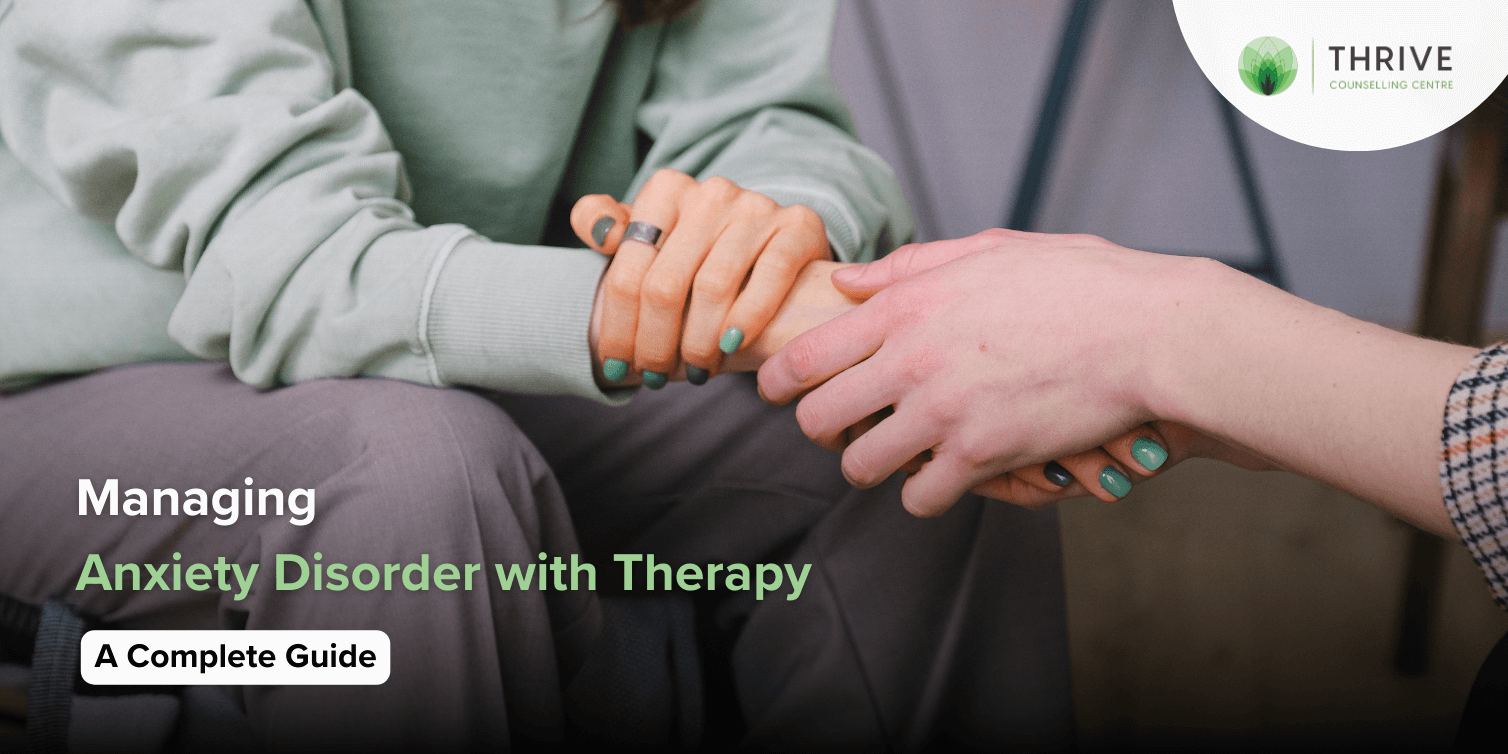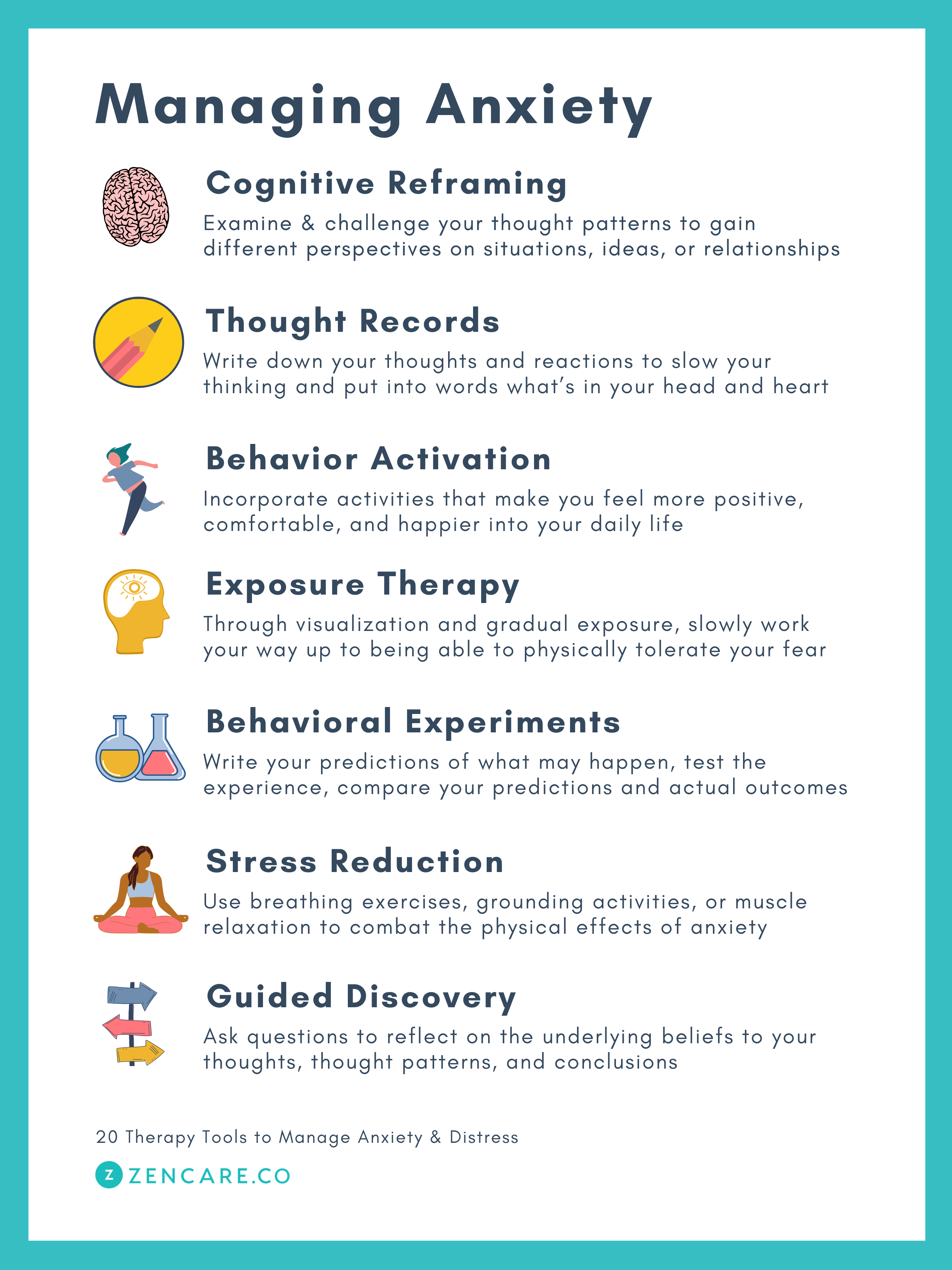Effective Strategies in Coaching for Anxiety Condition: A Course to Healing
When encountering anxiousness disorders, you may feel overloaded and unclear of where to turn. Effective coaching techniques can pave the means for healing, providing you with the devices to navigate your obstacles. From cognitive-behavioral strategies to mindfulness techniques, each strategy provides special advantages. Understanding exactly how these approaches collaborate can make a substantial distinction in your journey. What are the key parts that will lead you towards lasting adjustment?
Comprehending Stress And Anxiety Problems: A Thorough Overview
It's essential to recognize that they incorporate an array of problems characterized by extreme concern or fear when you believe concerning anxiousness problems. These problems can show up in numerous ways, including generalized anxiousness disorder, panic attack, and social anxiousness condition. You may experience symptoms like rapid heart beat, sweating, or difficulty concentrating. It's common to really feel overloaded, and these sensations can interrupt everyday life.Understanding the origin of anxiety is important. They can come from genes, brain chemistry, or ecological aspects. You might locate that certain situations activate your stress and anxiety, making it essential to recognize these triggers.
Cognitive Behavioral Treatment (CBT): Reshaping Thought Patterns

Mindfulness and Leisure Techniques: Growing Present-Moment Awareness
Mindfulness and leisure strategies aid you grow present-moment understanding, enabling you to take care of stress and anxiety better. By concentrating on the present moment, you can break without the cycle of concern and rumination that usually gas anxiety. Start by practicing deep breathing workouts. Inhale gradually with your nose, hold for a moment, after that breathe out through your mouth. This simple method can calm your mind and body.Engage in mindfulness meditation by reserving a couple of mins daily to observe your thoughts without judgment. Focus on your breath, experiences, and the noises around you. You could also locate worth in dynamic muscle relaxation, where you strained and kick back each muscular tissue group, advertising physical and psychological ease.Incorporating these techniques right into your daily regimen can create a greater sense of control, decrease anxiety symptoms, and improve your overall well-being. Remember, uniformity is crucial to experiencing the benefits.
Exposure Therapy: Dealing With Worries Progressively
Exposure treatment aids you face your fears slowly, allowing you to construct confidence with time. By utilizing progressive direct exposure techniques, you can gradually confront what makes you distressed while creating effective coping mechanisms. This process not only minimizes your anxiety yet likewise empowers you to take care of anxiousness better.
Progressive Direct Exposure Methods
When you challenge your concerns slowly, you can efficiently minimize anxiousness and restore control over your life. Gradual direct exposure strategies entail facing your fears tip by action, starting with much less intimidating scenarios. You may start by picturing the been afraid situation, then advance to seeing photos or video clips associated with it. At some point, you can practice confronting the worry in the real world, but only when you feel all set. This approach enables you to construct self-confidence as you move via each stage. Remember to speed yourself; rushing can boost anxiousness. Celebrate small triumphes along the road, as each advance encourages you. By continually using these techniques, you'll discover that your anxieties begin to shed their grip on your mind.
Building Coping Devices
Building effective coping devices is necessary for taking care of anxiety, specifically as you face your fears progressively via direct exposure treatment. Beginning by recognizing your particular anxieties and damaging them down into convenient steps. This way, you can slowly challenge each worry without coming to be overwhelmed. If you have a hard time with social circumstances, start by practicing small interactions, like welcoming a neighbor.Alongside gradual exposure, include leisure techniques such as deep breathing or mindfulness to calm your mind before encountering triggers. Keep a journal to track your progression and celebrate tiny success. Border on your own with encouraging close friends or a specialist who can guide you. Remember, it's a trip-- patience and determination will certainly strengthen your coping systems, resulting in greater durability versus anxiousness.
Encouraging Counseling: Building Trust Fund and Relationship
To efficiently support a person with anxiousness, developing depend on and rapport is crucial from the extremely first session. You'll intend to produce a secure room where they really feel comfortable sharing their thoughts and feelings without judgment. Energetic listening is essential; program genuine rate of interest in what they share. Recognize their sensations and confirm their experiences. It's essential to be empathetic, as this helps construct a link and motivates openness.Be regular in your strategy and preserve confidentiality to further strengthen that count on. Usage open body movement and make eye contact to convey your listening. Keep in mind, your patience goes a lengthy means; structure rapport requires time, and it's important to appreciate their rate. By cultivating this helpful atmosphere, you'll equip them to involve even more fully in the restorative procedure, making it less complicated for them to discover their anxiety and job toward recovery.
Group Therapy: Shared Experiences and Cumulative Healing
Group treatment can be a powerful device for those taking care of anxiousness disorders, as it permits individuals to share their experiences and locate relief in the understanding of others. In this supportive setting, you can share your sensations without concern of judgment. Listening to others' stories can stabilize your very own experiences, making you really feel much less alone in your struggle.Participating in team therapy assists you create coping techniques through shared expertise and insights. As you pay attention to others, you might discover brand-new methods to tackle your anxiousness that you had not taken into consideration before.Moreover, the cumulative healing that happens in these sessions can cultivate this a feeling of community, reminding you that you're not encountering your obstacles alone.Building connections with others that comprehend your battle can enhance your confidence and motivation to challenge your anxiousness. Group therapy develops an area where development and healing end up being a shared trip, equipping you to take steps toward recuperation.
Integrating Way Of Life Modifications: Alternative Methods to Stress And Anxiety Monitoring
While therapy gives crucial assistance, integrating way of life changes can considerably improve your capacity to handle anxiousness. Start by including normal exercise right into your routine. Workout releases endorphins, which can boost your mood and lower tension. Next off, take notice of your diet regimen. Eating a balanced diet abundant in fruits, vegetables, and entire grains can positively influence your mental health. Do not forget sleep-- objective for 7-9 hours per night, as high quality remainder is vital for emotional regulation.Mindfulness techniques, such as reflection or yoga exercise, can likewise aid you remain grounded and present. Take into consideration establishing apart time each day to exercise these strategies. Limitation caffeine and alcohol consumption, as they can worsen stress and anxiety signs. By making these holistic modifications, you produce a stronger structure for taking care of stress and anxiety, complementing the benefits obtained from treatment. Remember, every small action counts on your path to recuperation.
Frequently Asked Questions
What Are the Usual Physical Signs And Symptoms of Stress And Anxiety Disorders?
Common right here physical symptoms of stress and anxiety conditions consist of quick heart rate, shortness of breath, muscle mass stress, sweating, and headaches. You may likewise experience tiredness, lightheadedness, or gastrointestinal issues, which can better complicate your life.
How Much Time Does Counseling for Anxiety Typically Take?

Therapy for stress and anxiety commonly takes a few weeks to several months, depending on your specific requirements and progression. counselling for anxiety. You'll discover that regular sessions aid you establish dealing techniques and obtain insights into your stress and anxiety
Can Stress And Anxiety Disorders Be Completely Cured?

What Should I Do in an Anxiety attack?
Throughout a panic assault, emphasis on your breathing. Inhale deeply with your nose, hold for a minute, after that exhale slowly - counselling for anxiety. Ground yourself by calling items around you, and advise on your own it will certainly pass
Exist Medications for Stress And Anxiety Conditions?
Yes, there are a number of medications for anxiety conditions, including antidepressants and benzodiazepines. You need to consult a healthcare expert to locate the best treatment plan tailored to your particular demands and scenarios for the ideal outcomes. When you assume concerning stress and anxiety problems, it's vital to identify that they incorporate a range of problems defined by too much concern or concern. These problems can show up in different methods, consisting of generalised anxiousness disorder, panic condition, and social stress and anxiety problem. Structure efficient coping mechanisms is essential for handling anxiousness, specifically as you face your worries progressively via direct exposure treatment. Team treatment can be an effective device for those dealing with anxiety conditions, as it allows individuals to share their experiences and find relief in the understanding of others. As you pay attention to others, you might discover brand-new means to tackle your stress and anxiety that you hadn't thought about before.Moreover, the cumulative recovery that takes place in these sessions can cultivate a feeling of community, advising you that you're not encountering your difficulties alone.Building connections with others that recognize your struggle can boost your self-confidence and motivation to challenge your anxiety.